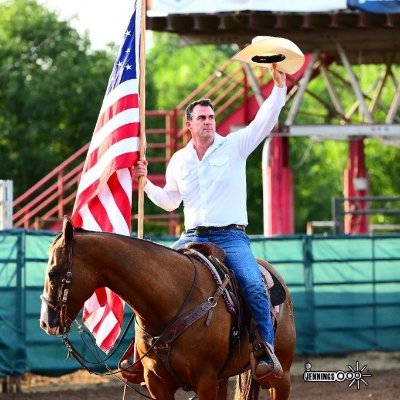
- Details
- By Darren Thompson
On Monday, Oklahoma Governor Kevin Stitt vetoed a bill that 96% of the Oklahoma Legislature voted yes to—House Bill 3501. If passed, HB3501 would require the Oklahoma Department of Public Safety to recognize and act upon convictions in a Tribal court, of any federally recognized tribe in Oklahoma, in the same manner it acts upon any report of conviction from an Oklahoma state or other municipal court.
The bill is specifically in regards to drivers licenses, whether or not to honor convictions in Tribal courts in the state, and if the state should apply them to drivers license suspension and revocation in the state of Oklahoma.
“It would essentially require the State to carry out tribal court adjudications, no questions asked,” said Stitt in his veto letter on May 9. “Specifically, it would bind the Department of Public Safety, a State agency, to recognize and act upon reports of conviction submitted by courts of any federally recognized Indian tribe located anywhere in the State of Oklahoma in the same manner it acts upon reports of conviction from State and municipal courts.”
In Oklahoma, the state recognizes a "qualified court" as one that adopted the Tribal Law and Order Act of 2010. Signed by former President Barak Obama, the Tribal Law and Order Act of 2010 increased law enforcement officers in Indian Country, increased Tribal courts’ abilities to increase jail sentences on Indian lands, and provided additional tools to address documented public safety needs.
“If this bill had required of tribes what is expected of all legitimate governments--namely: transparency, accountability, and reciprocity, among others, perhaps I would have signed it,” said Stitt. “But as it reads now, this bill further erodes more than one hundred and ten years of settled State jurisdiction and sovereignty. As Governor, I will not be a part of any effort to yield to tribes sweeping jurisdiction where legally there is none.”
Today, the Inter-Tribal Council of the Five Civilized Tribes issued a statement in response to Governor Stitt's veto of the Oklahoma bi-partisan public safety bill:
“It’s unfortunate the governor vetoed the public safety bill, which is an opportunity to keep unsafe drivers off Oklahoma’s roads through sharing information. Our Five Tribes are committed to upholding public safety and we welcome opportunities to collaborate and work together to solve the important public safety challenges ahead of us all, but yet again, our governor continues to be uncooperative and unwilling. This bill, with language provided by the Oklahoma Department of Public Safety, and overwhelming support by the legislature, will keep drivers, citizens and communities safe for all four million Oklahomans in our state. Hopefully, the Oklahoma legislature will override Governor Stitt’s destructive veto.”
The members of the Inter-Tribal Council include Cherokee Nation Principal Chief Chuck Hoskin Jr., Muscogee Nation Principal Chief David Hill, Chickasaw Nation Governor Bill Anoatubby, Choctaw Nation of Oklahoma Chief Gary Batton, and Seminole Nation of Oklahoma Chief Lewis L. Johnson. Together, they represent nearly 750,000 people.
More Stories Like This
50 Years of Self-Determination: How a Landmark Act Empowered Tribal Sovereignty and Transformed Federal-Tribal RelationsTlingit Haida Tribal Business Corporation Clarifies Federal Contracting Work
Homeland Tour Offers Deeper Understanding, Appreciation of Chickasaw Roots
Klamath Tribes Seek to Reverse Judge’s Removal in Water Rights Case
Tunica-Biloxi Chairman Pierite Elected President as Tribal Nations Unite Behind New Economic Alliance
Help us defend tribal sovereignty.
At Native News Online, our mission is rooted in telling the stories that strengthen sovereignty and uplift Indigenous voices — not just at year’s end, but every single day.
Because of your generosity last year, we were able to keep our reporters on the ground in tribal communities, at national gatherings and in the halls of Congress — covering the issues that matter most to Indian Country: sovereignty, culture, education, health and economic opportunity.
That support sustained us through a tough year in 2025. Now, as we look to the year ahead, we need your help right now to ensure warrior journalism remains strong — reporting that defends tribal sovereignty, amplifies Native truth, and holds power accountable.
 The stakes couldn't be higher. Your support keeps Native voices heard, Native stories told and Native sovereignty defended.
The stakes couldn't be higher. Your support keeps Native voices heard, Native stories told and Native sovereignty defended.
Stand with Warrior Journalism today.
Levi Rickert (Potawatomi), Editor & Publisher

